As a general rule articles that are posted on this website infer or in some way point towards, or add weight to an "integral systems" or 'holodynamic systems" world-view.
Please be aware that the opinions, beliefs and materials of contributing authors need not reflect the beliefs or opinions of other contributing authors.
Dr Ted Steele
Excerpt of Dr Ted Steele's Australian National University webpage:
"Our current research concerns the antigen-driven somatic generation of antibody diversity. Results of companion studies on the origin of germline antibody diversity can be found in selected publication numbers 6,7,11-15."
Additional materials:
Dr Werner Sattmann-Frese
Werner Sattmann-Frese is a social ecologist and psychotherapist who founded Living for a Sustainable Earth.
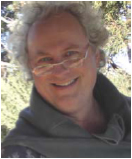
Werner Sattmann-Frese studied conventional medicine and body-oriented psychotherapy from 1977 until 1984. Since then he has been working as a psychotherapist mainly in private practice.
Frank Juszczyk, PhD
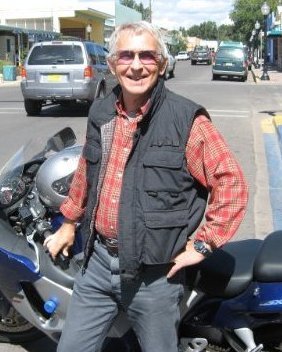 Having completed a career as a university professor in 2004, I began to investigate the fascinating implications of quantum physics for a reconfiguration of what life is about and what it could mean.
Having completed a career as a university professor in 2004, I began to investigate the fascinating implications of quantum physics for a reconfiguration of what life is about and what it could mean.
Peter Russell
Peter Russell M.A., D.C.S., F.S.P.
Peter Russell is a fellow of the Institute of Noetic Sciences, of The World Business Academy and of The Findhorn Foundation, and an Honorary Member of The Club of Budapest.
Prof. Amit Goswami
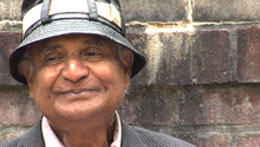 Retired Professor of physics from the University of Oregon’s Institute of Theoretical Science, Dr. Goswami is a revolutionary in a growing body of renegade scientists who in recent years have ventured into the domain of the spiritual in an attempt both to interpret the seemingly inexplicable findings of their experiments... and to validate their intuitions about the existence of a spiritual dimension of life.
Retired Professor of physics from the University of Oregon’s Institute of Theoretical Science, Dr. Goswami is a revolutionary in a growing body of renegade scientists who in recent years have ventured into the domain of the spiritual in an attempt both to interpret the seemingly inexplicable findings of their experiments... and to validate their intuitions about the existence of a spiritual dimension of life.
Prof. Ervin Laszlo
 Dr. Laszlo is generally recognized as the founder of systems philosophy and general evolution theory. His work in recent years has centered on the formulation and development of the "Akasha Paradigm," the new conception of cosmos, life and consciousness emerging at the forefront of the contemporary sciences.
Dr. Laszlo is generally recognized as the founder of systems philosophy and general evolution theory. His work in recent years has centered on the formulation and development of the "Akasha Paradigm," the new conception of cosmos, life and consciousness emerging at the forefront of the contemporary sciences.
Prof. Marjorie Hewitt Suchocki
 Marjorie Hewitt Suchocki, Ph.D., is Professor Emerita, Claremont School of Theology, and a co-director of the Center for Process Studies and its related program, Process & Faith.
Marjorie Hewitt Suchocki, Ph.D., is Professor Emerita, Claremont School of Theology, and a co-director of the Center for Process Studies and its related program, Process & Faith.
Prof. Reg Cahill
 Professor Reginald Cahill is Professor in Physics in the School of Chemical and Physical Sciences, Flinders University, Adelaide.
Professor Reginald Cahill is Professor in Physics in the School of Chemical and Physical Sciences, Flinders University, Adelaide.
Prof. Robert Jahn
The following excerpt is now (circa 2020) defunct, deleted from the princeton.edu website.
Prof. Stuart B. Hill
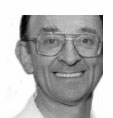
Professor Stuart B. Hill was appointed Foundation Chair of Social Ecology at the University of Western Sydney in 1996. At UWS he taught units on Qualitative Research Methodology, Social Ecology Research, Transformative Learning, Leadership & Change, and Sustainability, Leadership & Change: A Social Ecology Perspective.
Stephen Pirie
In brief:
Stephen1 is a belief-systems specialist (covering business, social, scientific, political and personal dimensions to life).
Steven Lesser
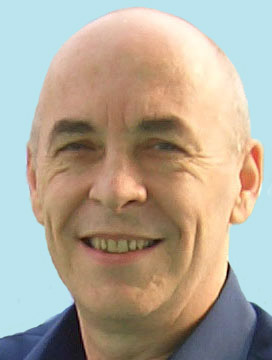
Steven Lesser is an industry and services consultant with over 40 years work experience. As an adjunct university lecturer, he teaches in several market related programs at both graduate (MBA) and undergraduate level, specialising in executive mentoring and coaching, project and operations management, finance and marketing disciplines.
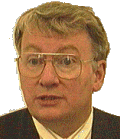 Excerpt of
Excerpt of 
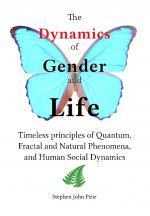 "The Dynamics of Gender and Life" ebook is now available at
"The Dynamics of Gender and Life" ebook is now available at